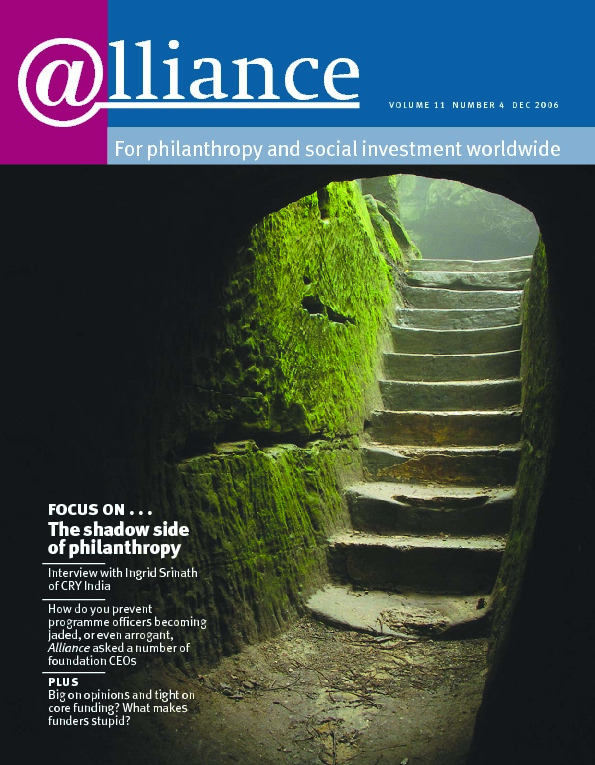Simon Collings (‘Can you blame them?’ in the September issue of Alliance) provides a useful reality check on the motives of governments receiving democracy assistance. I fully agree that the Iraq War has allowed undemocratic leaders to paint the work of international NGOs as a sort of advance guard in a new policy of militant Wilsonianism.
Yet while some presidents for life may honestly believe that since the US Army is bogged down, they sent in the NED, I do not share this opinion. Collings takes as his main proof the fact that US democracy assistance has increased following the Iraq invasion. It has, but only if Iraq and Afghanistan are factored in. In countries where NED is supposedly mounting a ‘soft power’ war, funding has dropped. To cite three examples, democracy promotion in Uzbekistan has gone from $7.3 million in 2004 to $5.1 million in 2006, in Belarus it has dropped from $5.6 million to $4 million, and in Turkmenistan it has stayed flat at about $1 million. A more accurate interpretation may be that the US Army is tied up in Iraq, and democracy programmes are paying for it.
As Collings notes, US assistance is tied to foreign policy goals, as it has been since the Marshall Plan. This foreign policy has been and continues to be primarily driven by realist goals such as securing energy and maintaining US hegemony. Yet more than with any other great power in history, liberal values of promoting democracy and better living standards in other countries also play a role. Following the Cold War, it is (usually) not enough for a country to be a US ally. One also has to show progress on human rights and democracy, however limited. Bush’s innovation is that he uses hard power to pursue goals normally reserved for soft power, if one accepts the ex-post argument that the Iraq invasion was intended as a liberation.
Yet most if not all international NGOs implementing US assistance programmes are not driven by the realist half of foreign policy but rather by the liberal one, and they are of course limited to a soft-power approach. Here Collings overshoots. Neither the US nor NGOs receiving its funding are ‘struggling for influence’ in the civil societies of repressive regimes. Ask George Soros, the most active promoter of civil society in history, if his foundations are transformed into soft-power instruments of US policy when they accept US funding.
International NGOs are, at times against great odds, seeking to promote civil society for its own sake as a public good. They were before Bush took office and they will after he leaves. Unfortunately some undemocratic leaders have decided that the real threat to their stay in power comes from their own people. Rather than trying to satisfy their demands, they seek instead to silence them. This is where the struggle is taking place in the most recalcitrant states. Not for influence in civil society, but for whether civil society will survive at all.
Jeff Erlich
Director, Central Asian regional programs, Eurasia Foundation


Comments (0)